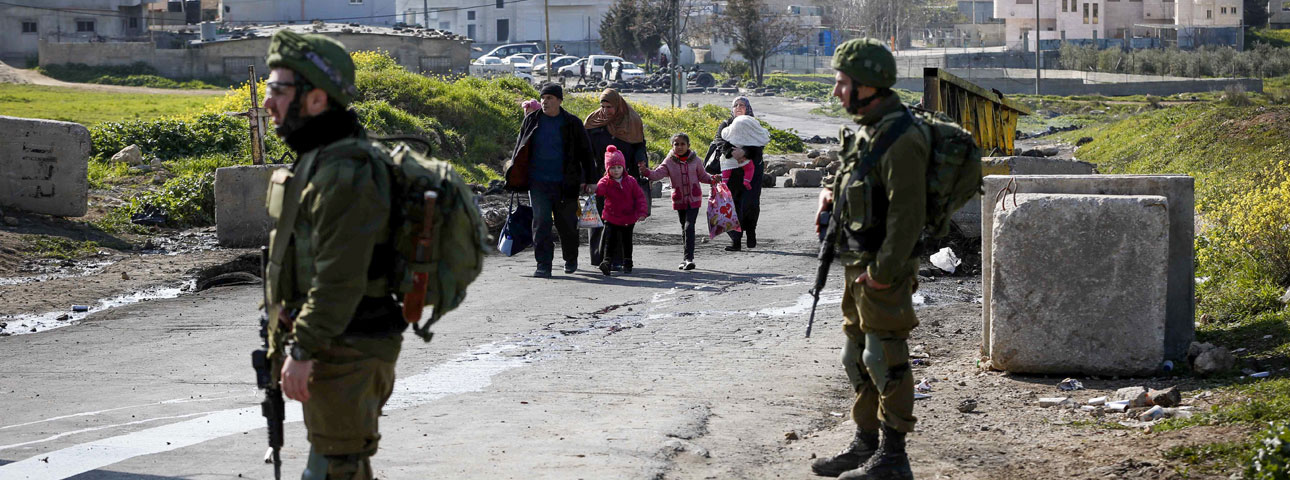State of Emergency in Israel: Is It Really Necessary?
The Knesset once again renewed the declaration of a state of emergency —which allows the Government to enact emergency regulations that in effect can amend Knesset legislation. This practice has been around since the establishment of the State - is it still necessary?

Flash 90
President Trump’s problematic attempt to circumvent Congress’s refusal to fund construction of a wall between the United States and Mexico by declaring a “state of emergency” with regard to the immigration issue, has stirred up fierce criticism. When the executive branch arrogates to itself extreme powers in the name of a dubious l “emergency”, the democratic world sees this as a serious blow to the system of checks and balances, essential for preserving the rule of law. To Israeli ears, however, the public storm sounds like a tempest in a teacup. What’s the big deal? We have been living in a permanent state of emergency ever since the state was born.
The Knesset will soon have to renew the declaration of a state of emergency once again—and, as usual, the issue goes without much notice in the public. But in Israel, too, the declaration of a state of emergency has far-reaching implications. It allows the Government to enact emergency regulations that in effect can amend Knesset legislation. It is true that over the years Israeli governments have not made frequent use of power, but from time to time they do wield it to end labor disputes in sensitive domains. As recently as August 2017, the Government issued emergency regulations to force the employees of the Israel Atomic Energy Commission to end their sanctions. In addition, there are laws which are valid only in a state of emergency. A prominent example is the Administrative Detention Law, which grants the Defense Minister a one-time only authority to imprison individual without trial if they are seen as a danger to state security.
In 1999, the Association for Civil Rights in Israel petitioned the High Court of Justice to abolish the state of emergency, on the grounds that the situation in the country does not justify empowering the Government to override the Knesset, and that its continuation in these circumstances undermines the rule of law. In response to pressure by the justices, and with the understanding that the only reason for the perpetuation of the declaration of a state of emergency was the number of laws that would not be enforceable without it, the Government and the Knesset began an extensive effort to sever the connection between these statutes from the state of emergency. Today, some two decades later, this process has yet to be completed.
We should salute the many efforts being invested to end the state of emergency, and welcome the progress made to date. Nevertheless, there is a fundamental problem here: even if we are not facing an emergency, Israel must cope with complex security challenges that sometimes call for recourse to extraordinary means. If, at the end of the process, draconian powers are enshrined in the permanent statutes of the Israeli law books—without stipulation of the checks and balances — we are liable to find ourselves normalizing arrangements that intrinsically infringe on the rule of law.
The next Knesset is expected to resume deliberations on a Government bill to sever the power of administrative detention from the declaration of a state of emergency and, make it possible to invoke security needs in order to hold citizens in preventive detention even in “regular” times. This is an especially problematic power, which would allow locking up a person up for an unlimited period on the basis of classified evidence that he and his attorneys were not allowed to see. Even if there is judicial review of the detention, the proceeding does not give judges the basic tools they need to ensure that justice is done. The Government bill also includes a detailed outline for the imposition of a broad spectrum of administrative restrictions—ranging from house arrest to a ban on entering certain areas or on leaving the country. We all know that these are not theoretical issues: in recent years dozens of restriction orders have been issued, mainly against rightwing activists. According to Justice Ministry data, around 20 administrative detention orders conforming with Israeli law were issued between May 2017 and August 2018. There are also hundreds of Palestinians held in administrative detention in the territories, under the military legislation in force there: as of April 2019, there were 479 such persons.
In this matter, as in others that the Knesset will have to decide about as part of the efforts to put an end to the declaration of a state of emergency, we must be cognizant of the need to adapt the arrangements to the situation that will prevail after the state of emergency has ended and to define checks and balances that are appropriate for Israeli democracy in the twenty-first century. Otherwise, even if we finally terminate the state of emergency to which we have become accustomed, we will have lost more than we gained.
The article was published in the Times of Israel.
